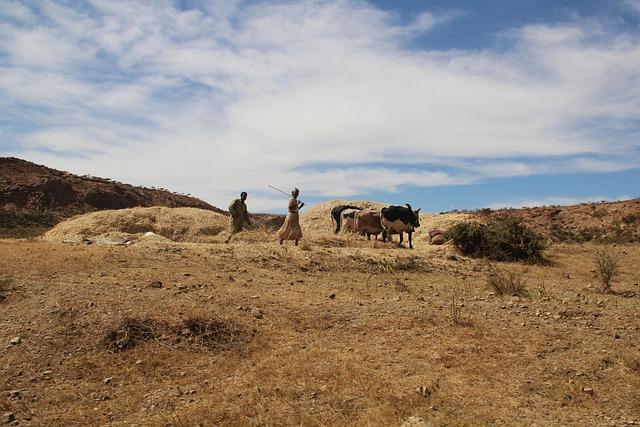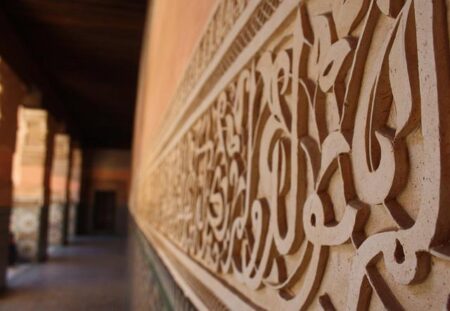in a stark reminder of the ongoing human rights challenges in Eritrea, Amnesty International has issued an urgent plea for the immediate and unconditional release of 28 prisoners of conscience who have been detained for nearly two decades. These individuals where arrested in the aftermath of a violent crackdown on dissent in 2001, a year that marked a significant deterioration in the country’s repressive political climate. The prolonged imprisonment of these detainees, including politicians, journalists, and activists, underscores a broader pattern of systemic human rights violations in Eritrea, where freedom of expression and political pluralism remain severely restricted. As international scrutiny of the Eritrean government’s practices intensifies, Amnesty International’s call to action highlights not only the dire conditions faced by these prisoners but also a pressing need for accountability and reform within the nation’s justice system.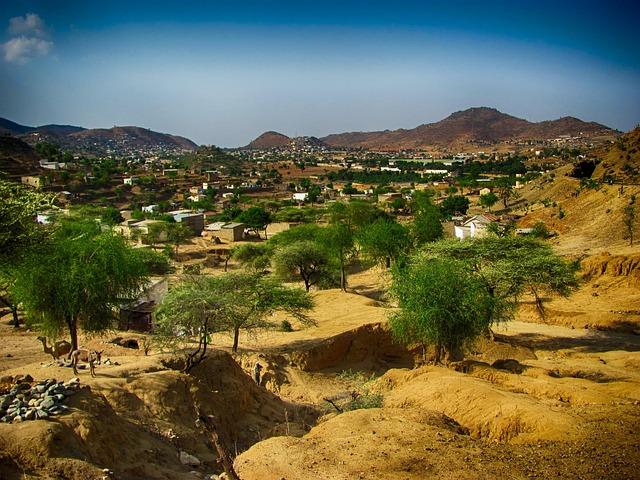
Eritrea’s Continued Detention of Prisoners of Conscience: A Call for Justice
The plight of the 28 prisoners of conscience, incarcerated for nearly two decades in Eritrea, highlights a longstanding issue of human rights abuses in the country. These individuals,who stand accused of expressing dissenting views,belong to various backgrounds,including journalists,political leaders,and religious figures. Their continued detention without trial epitomizes a systemic crackdown on freedom of expression and has drawn the ire of human rights organizations across the globe.It is vital that the international community applies pressure on Eritrean authorities to ensure these prisoners are recognized and supported.
Many of these individuals have endured harsh prison conditions, often leading to serious health issues and psychological trauma. Reports indicate that key issues facing prisoners include:
- Prolonged isolation: Many are kept in solitary confinement, exacerbating mental health conditions.
- Lack of medical care: Basic health services are often denied, leading to deteriorating health.
- No legal representation: Trials are non-existent, leaving detainees without recourse.
as calls for justice grow louder, it is imperative for human rights defenders to continue to raise awareness and demand action. International bodies must scrutinize Eritrea’s human rights record and hold it accountable for its treatment of dissenters, thereby paving the way for a more just and equitable society.
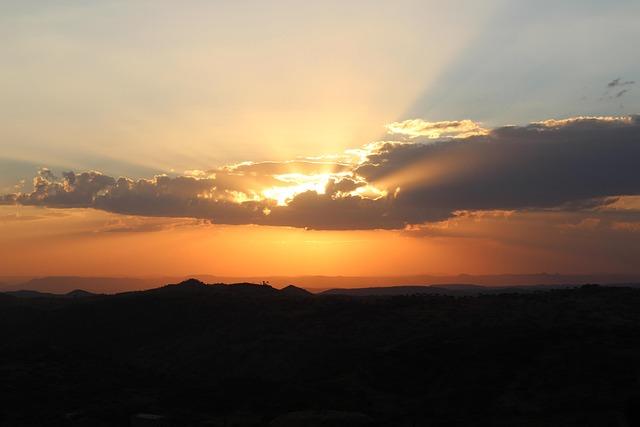
The Human Cost of Injustice: Profiles of the 28 Detained Individuals
The plight of the 28 detained individuals reflects the profound human cost of ongoing injustice in Eritrea. These individuals, imprisoned for their beliefs and expressions of dissent, each carry a story that underscores the urgent need for their release. Among them are political leaders, religious figures, and activists who have been subjected to harsh conditions, isolation, and a denial of fundamental rights. Their families have endured years of uncertainty and heartbreak, living under the shadow of their loved ones’ unjust confinement.
The following profiles highlight the diversity and resilience of these individuals, shedding light on their experiences and the broader implications for human rights in Eritrea:
| Name | profession | Years Detained |
|---|---|---|
| Abraham | Journalist | 18 |
| Selam | Religious Leader | 18 |
| Daniel | Activist | 18 |
| Mariam | Teacher | 18 |
| Isaac | Politician | 18 |
Each profile tells a story of courage in the face of repression. The enduring silence imposed on them serves as a stark reminder of the broader atmosphere of fear that prevails in Eritrea. Families are left fragmented, communities silenced, and the principles of justice compromised.every day that passes without their release compounds the injury of injustice, urging the international community to take action and uphold the dignity of those who have suffered for standing firm in their convictions.
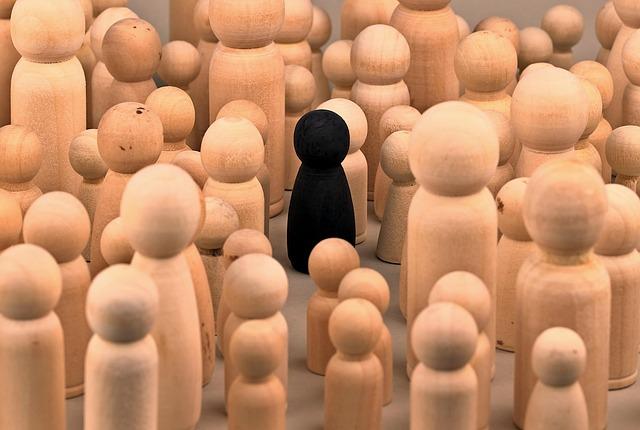
eritrea’s Political Landscape: The Impact on Human Rights and dissent
The political habitat in eritrea has long been characterized by repression and a pervasive climate of fear that stifles dissent and undermines fundamental human rights. Over the years,the Eritrean government has systematically targeted dissenting voices,labeling them as threats to national security. As a consequence, a significant number of individuals have been imprisoned for exercising their rights to freedom of expression and assembly. Reports estimate that thousands are currently held in clandestine detention centers, where they face harsh treatment and violation of basic human rights. As an example, Martyrsﻗ Day, celebrated annually, is frequently enough marred by state-led propaganda and suppression of alternative narratives, leaving little room for public discourse or criticism of the regime.
For many families, the impact of this hostile political atmosphere is deeply personal. Among those most affected are the 28 prisoners of conscience who were detained 18 years ago for voicing their beliefs and challenging the status quo. Their prolonged imprisonment serves as a stark reminder of the Eritrean government’s prioritiesﻗmaintaining absolute power at the expense of civil liberties. Amnesty International continues to advocate for the immediate and unconditional release of these individuals, highlighting that improving the human rights situation in Eritrea is crucial not only for the detainees but also for fostering a society where freedom and justice can thrive. The world must remain vigilant and amplify calls for accountability, as failure to do so could embolden further violations in the future.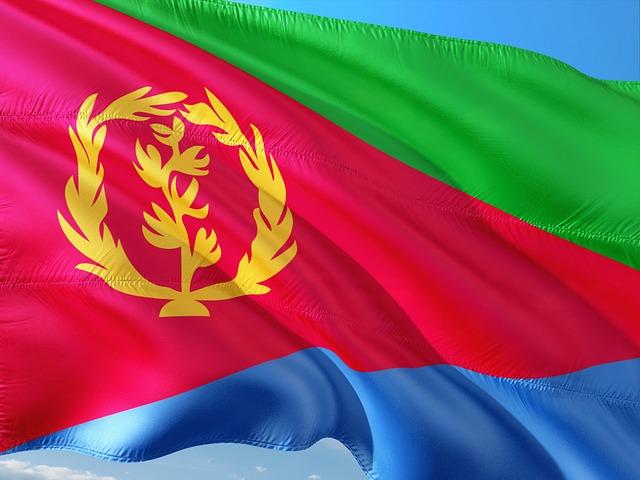
Amnesty International’s Recommendations: Steps Toward Immediate Action
In light of the ongoing plight faced by 28 prisoners of conscience in Eritrea, Amnesty International has outlined critical steps that must be undertaken to ensure their immediate release. These individuals have endured nearly two decades of unjust detention due to their peaceful expression of dissent. To pressure the Eritrean authorities,Amnesty calls for a united international response,emphasizing the importance of leveraging diplomatic channels,imposing targeted sanctions,and rallying public support for the cause. Key recommendations include:
- Diplomatic Engagement: Countries must engage with Eritrea on human rights issues, prioritizing the plight of the detainees in bilateral discussions.
- Targeted sanctions: Governments should consider implementing sanctions against Eritrean officials known for overseeing human rights abuses.
- Public Advocacy: Launch campaigns to raise awareness about the situation of these prisoners, aiming to mobilize public support.
Additionally, Amnesty International urges organizations and individuals to monitor and report on developments within eritrea’s human rights landscape. Continuous documentation of abuses is vital for holding the government accountable and shedding light on unsanctioned detentions. By fostering partnerships with global human rights entities, resources can be pooled, maximizing the pressure on the Eritrean regime. Essential actions to consider include:
- Monitoring Missions: Deploy international observers to document human rights violations.
- Coalition Building: Form alliances with local NGOs and international bodies to strengthen advocacy efforts.
- Media Engagement: Utilize both customary and social media platforms to amplify calls for justice.

Global Response: The Role of International Communities in Advocating for Eritrean Rights
The plight of the 28 prisoners of conscience in Eritrea has not gone unnoticed in the international arena. Advocacy from global organizations, such as Amnesty International, has spurred increased attention to the human rights violations in the country.Consequently, various international communities have taken on the duty of voicing concerns and calling for justice on behalf of these individuals, who have languished in inhumane conditions for nearly two decades. Grassroots movements, diplomatic efforts, and social media campaigns have all played a role in amplifying their cause, fostering a sense of urgency and solidarity among various nations and civic engagements worldwide.
In light of these developments, several key actions have emerged as critical to advocating for Eritrean rights:
- International Diplomacy: Collaborative negotiations aimed at pressuring the Eritrean government to adhere to international human rights standards.
- Public Awareness Campaigns: Utilizing platforms to highlight the injustices faced by prisoners, thereby expanding support for their immediate release.
- Coalition Building: Forming alliances among human rights organizations, governments, and NGOs to leverage their collective power for advocacy.
- Sanctions and resolutions: Urging international bodies like the United Nations to impose sanctions or resolutions that target human rights abuses in Eritrea.
| Key Players | Contribution |
|---|---|
| amnesty International | Highlighting prisoner cases and lobbying for their rights. |
| United Nations | Providing a platform for international dialog on human rights. |
| Human Rights Watch | Conducting reports and campaigns to raise awareness. |
| Grassroots Activists | Mobilizing communities and generating local support. |
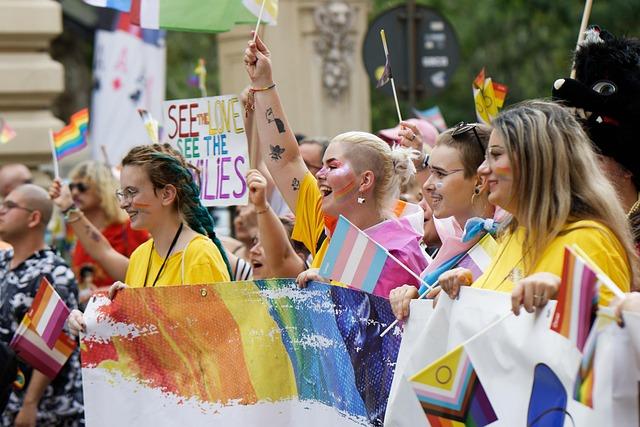
The Road Ahead: Ensuring Accountability and Promoting Human Rights in Eritrea
The persistent detention of 28 prisoners of conscience in Eritrea for nearly two decades is a stark reminder of the urgent need for accountability in the region. These individuals, who bravely stood against oppression, have endured prolonged suffering in violation of their fundamental rights.To ensure justice and foster a culture of human rights, it is imperative that the Eritrean government takes immediate action to release these detainees unconditionally. Continued silence and inaction would not only reflect poorly on the nation, but also embolden further human rights abuses.
International bodies, including organizations like Amnesty International, play a crucial role in advocating for the rights of imprisoned individuals. by raising awareness and applying diplomatic pressure, they can help to galvanize the global community towards a concerted effort to promote human rights in Eritrea. Key actions that must be pursued include:
- Mobilizing international support for the release of imprisoned activists.
- Engaging in dialogue with Eritrean authorities to outline the importance of upholding human rights.
- Establishing monitoring mechanisms to ensure transparency in human rights practices.
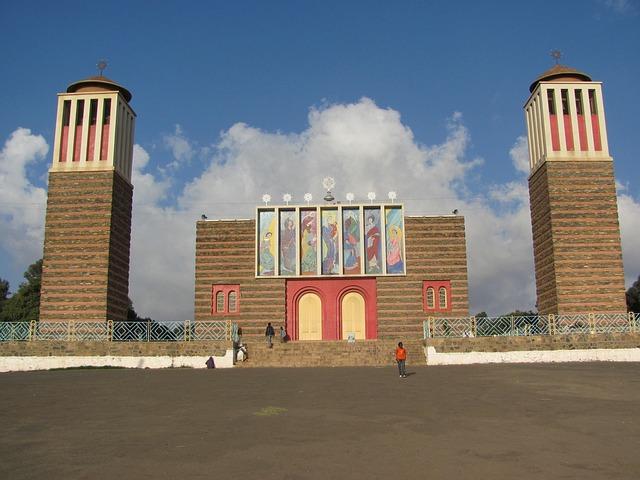
Key Takeaways
the plight of the 28 prisoners of conscience detained in Eritrea for nearly two decades underscores a broader pattern of human rights violations within the nation.Amnesty International’s urgent call for their immediate and unconditional release not only highlights the individual cases of these unjustly imprisoned individuals but also serves as a broader indictment of systemic repression in Eritrea. The international community must rally to hold the Eritrean government accountable, ensuring that basic human rights and freedoms are upheld. As awareness grows about the conditions faced by these prisoners, it is imperative that their stories are not forgotten and that concerted efforts are made to advocate for their release. Only through collective action can we hope to bring about meaningful change and restore dignity to those who have suffered in silence for far too long.

